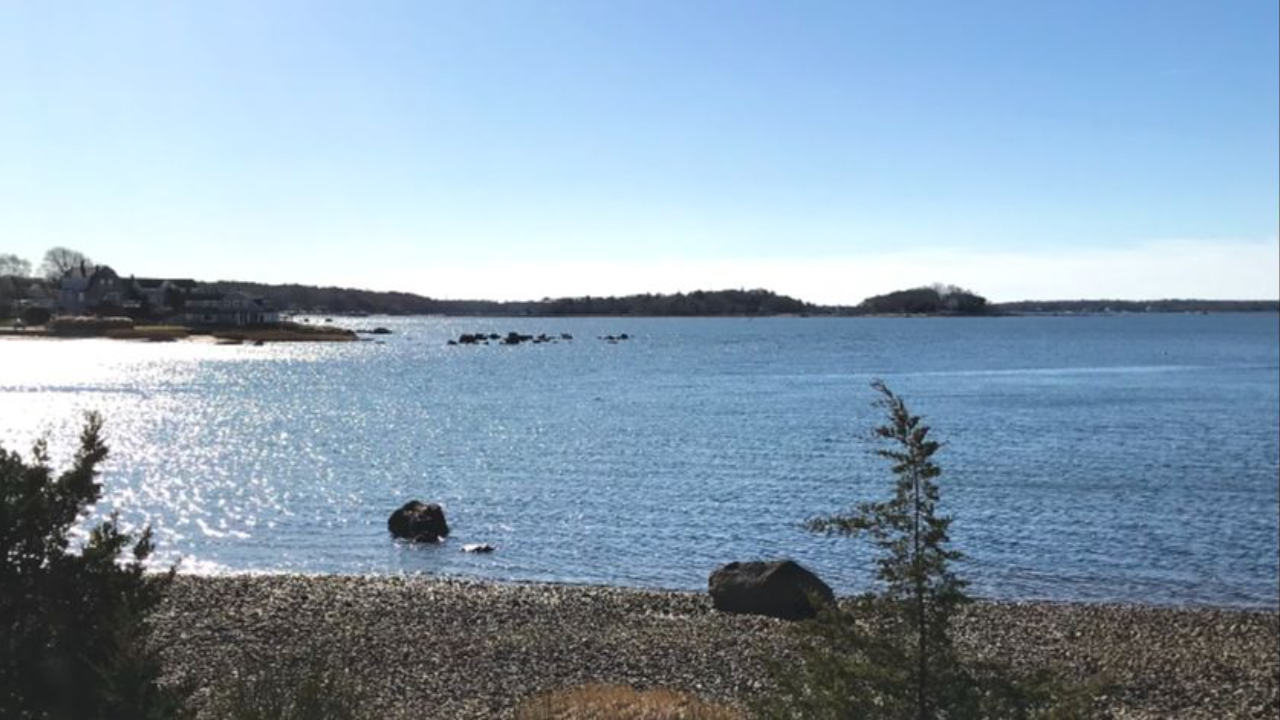Trauma is a Boomerang

In 2002 I had the opportunity to leave the city and move to Cape Cod with my boyfriend. It was the end of the summer when we moved and we felt like geniuses. We were staying in an old barn on my step father’s property. Neither of us had steady work and he was letting us pay next to nothing to rent it as long as we kept an eye on things, painted some fences, replaced some shingles and mowed the lawn here and there.
The walk to the bay always felt cinematic. It’s an old dirt road, closed to traffic, overgrown with tall, gnarly-limbed cedar trees. But as I’d approach the water, the wind would often pick up dramatically and the sky felt open and huge and generous, like a picnic blanket spread out, waiting.
Cape Cod in the off-season is a specific kind of tender lonely I’d never known before. Walking on the beach in a down coat, listening to the gulls and the egrets and the waves that never stop, feeling the wind at my back, wondering how my ancestors survived, scanning the ground for sea glass, scanning the horizon line for something I couldn’t name.
The town only had one shop within a reasonable distance. Everything was about $2 more than it should be and the main food item on the shelves was beer. That was where we’d catch the latest news and gossip. Other than trips to the town store, and the occasional splurge for mediocre pizza, we could go days and days without seeing a single soul.
That feeling - that we couldn’t believe our good fortune - wore off fast as the seasons shifted and winter kicked in for real. The winds were so strong against the sides of the barn, coming through the cracks in the windows, they would move the curtains. We cranked the heat, regardless of how miserably expensive the utility bills were, but we were perpetually cold.
In a picture from that time I’m sitting on the couch between our two cats wearing a turtleneck, a thick wool cardigan and sitting under a fleece blanket.
I remember trying to take baths in the not-quite-big-enough tub with the not-quite-hot-enough hot water. I would boil more water on the stove in one of my mom’s giant old lobster pots to compensate and it did help, but that sublime feeling of steeping yourself in burning hot water on a frigid night alluded me. My knees would stick out like two peaks of a mountain range and my face would grow clammy in the quasi-steamy air.
Then the snow came. In record amounts. We were never not shoveling. I got a job but it meant finding a way down the long driveway which was sometimes plowed but treacherously. I probably would have been better off snowshoeing it.
My boyfriend also got a job but his job took him out of state. He was freelancing so we weren’t sure how long the gig would last or when he’d be back. He wound up being gone for months which meant I waited out the end of the winter by myself with our 2 cats in an old, cold barn with leaky windows by the sea.
My memories of this time are vivid but also surreal. It was before my children existed in my life. There was so much quiet, so much down time. I used to read books and write music and draw things. I used to think of my own wants and my own hurts and my own needs without rapidly changing channels to get back to the main event of everybody else’s.
Every year on September 11th, I reflect on that chapter of my life - the months I spent alone on Cape Cod watching the winter slowly give way to spring before my boyfriend called to say the company he'd been working for wanted to bring him on full time and move us both back to New York. The end of the winter on my own was the first time I grieved, in earnest, what was lost on 9/11. It took 18 months for the shock to fully metabolize, for the deeper feelings to emerge.
I recognized that I didn’t just leave the city because of things like work or money or the opportunity to live cheaply by the sea. I left because I needed space as part of my process. I left because my home, New York, felt uninhabitable and broken to me. I left because I was seeking a place to hide. A place where no one would look and no one would see. I wanted room to fall apart and mourn and get in touch with how terrified I was to be in the midst of my 20’s with no optimistic sense of the future suddenly. With an ambiguous well of despair instead.
Sometimes we need to pull the picture back from our eyes a bit so we can see it better. Sometimes we expect too much of ourselves. We expect that we should come up with the solution when we haven’t even framed the question yet. Trauma can be a boomerang. The event happens and then it takes a while for the reality of it to whip back into a person’s consciousness and truly make itself felt and known.
In this life, all of us will lose little and big things and one of the most helpful gestures we can offer ourselves in times of loss is a break from expectation. Maybe that’s what grace is, when you get down to it. It’s the absence of time lines and agendas for our feelings. It’s the space to process them in our own way, in our own time.
It took me many years to realize that strange, lonely detour from my path in the city to the edge of the sea in a hollowed out vacation town was grace. It was a gift. It helped me to make peace with the closurelessness of an atrocity. I lost my innocence on 9/11. I see the world differently since then and sometimes I wish I could go back to those late 90’s, Sex and the City, frivolous, indulgent days. I wish I could believe in the simple stuff I believed in then and have it be enough to satisfy me. But as seekers we are always peeling the layers back, wanting to go deeper. Wanting to understand more about who we really are and about the nature of life - which inevitably includes growing more intimately familiar with what suffering means.
The question I carry now, more than 2 decades later, is: is there a way to live with both?
Is there a way to live with a sense of optimism about the future and also a clear-eyed understanding of how brutal the experience of being here and being human can be?
Does one have to blot out the other?
Do I have to live in ignorance in order to be happy?
Or can I rest on the frequency of happiness regardless of the difficulties which abound? The way the gulls used to ride the very edge of the waves. Perched on a moving thing. Existing between the currents of the sea and the currents of the sky. At home in either place. Belonging effortlessly and completely to themselves.
Peace to all on this difficult day,

